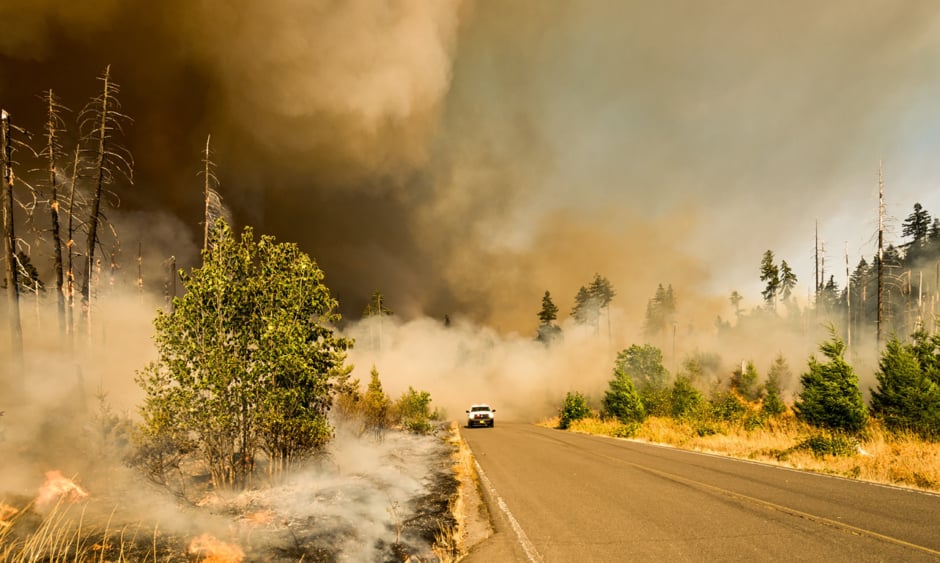WILDFIRE smoke has been linked to a heightened risk of out-of-hospital cardiac arrests, in some cases by as much as 70%, according to a new study by the American Heart Association. As a result of this finding, the study’s authors are offering advice on how to reduce exposure to heavy wildfire smoke to minimise this risk; cardiac arrests outside of the hospital are more dangerous as CPR or a defibrillator is needed to shock the heart back to its normal rhythm.
Researchers at the US Environmental Protection Agency’s Center for Public Health and Environmental Assessment used cardiac arrest data submitted to a Californian health registry between 2015 and 2017. The National Oceanic and Atmospheric Association used mapping data to classify smoke density as light, medium, or heavy, and it was found that out-of-hospital cardiac arrests were 70% higher on days with heavy smoke than days with no smoke, and for several days afterwards. These results were replicated in both women and men aged ≥35; however, the risk was greater in communities of lower socioeconomic status. They believe this to be due to the link between lower-income groups and higher incidences of respiratory conditions, as well as having limited access to protective resources.
Dr Ana Rappold, an author of the study, acknowledged that “in recent decades, we have experienced a significant increase in large-scale wildfires, therefore, more people are being exposed to wildfire smoke.” 2020 has already seen wildfires affecting Australia and California, and is therefore important that the health impacts of such events are understood. To reduce exposure, the researchers recommend people stay indoors with windows and doors closed, use high-efficiency air filters in air conditioning systems, use effective respirator masks, and avoid exertion.








